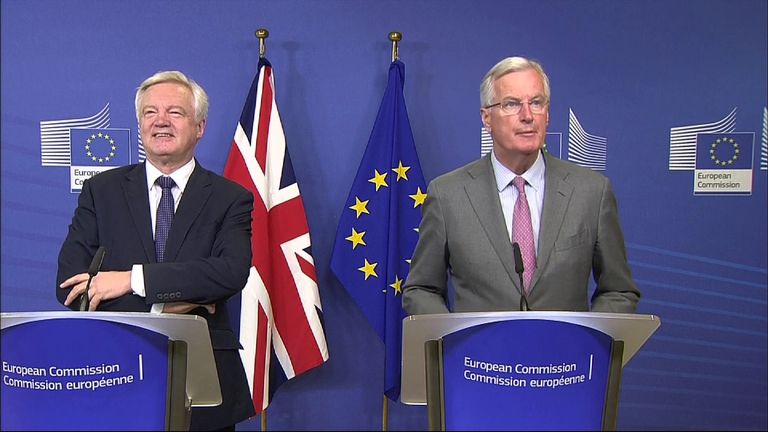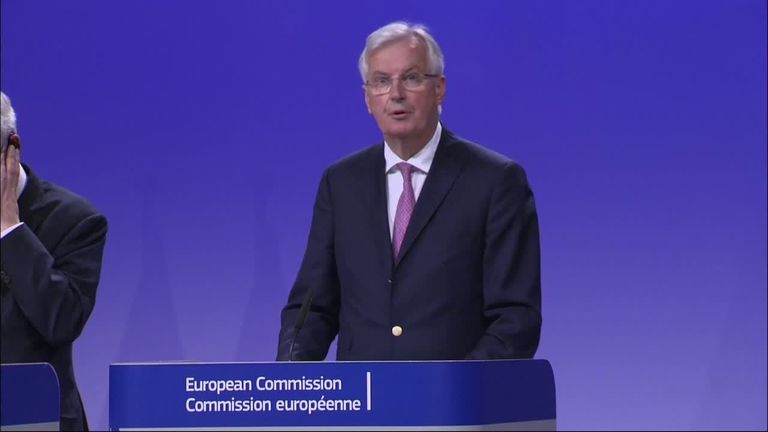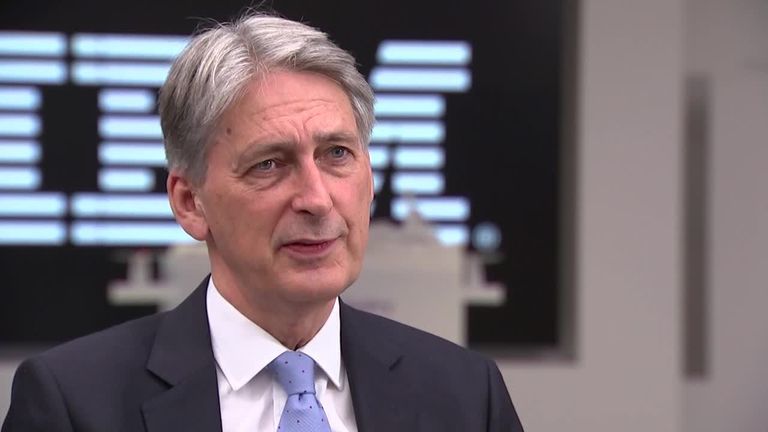EU negotiator warns of possible delays to Brexit trade talks
London believes talks on future ties can start in October, but the EU says lack of progress on divorce issues could cause a delay.
Thursday 27 July 2017 14:39, UK
The top EU and UK negotiators appear to be at odds over whether the next phase of Brexit talks could begin in the autumn.
Michel Barnier, who leads the EU side of the talks, has warned of a possible delay to discussions aimed at defining future ties between London and Brussels because of lack of progress in the current phase, focusing on the divorce.
Brussels wants sufficient progress on key issues surrounding the separation, such as a financial settlement and citizens' rights, before discussing future trade.
Mr Barnier had previously expressed hope that sufficient progress could be made by October.
But, briefing ambassadors from EU member states on the latest discussions with the British Government, he was sceptical.
"He said the likelihood of starting the future relationship talks in October appeared to be decreasing," one EU official involved in the talks told the Reuters news agency.
The Daily Telegraph reported that the start of this phase could now slip back to December.
However, Brexit Secretary David Davis expects the next stage to begin in October as planned, his department said.
A spokesman for the Department for Exiting the EU said "good progress" had already been made "on a number of issues".
"Government officials are working at pace and we are confident we will have made sufficient progress by October to advance the talks to the next phase," said the spokesman.
It was the latest sign of a gulf between the two sides - after Mr Barnier spoke last week of a "fundamental divergence" over how to protect the rights of EU citizens in the EU and called for clarity on the UK position on the Brexit bill.
Britain has conceded it would owe the EU an unspecified amount as part of a financial settlement as it leaves the bloc, but no official figure has been floated. The EU's rough estimate is around €60bn (£53bn).
The two sides remain at odds on other issues, including the rights of more than three million EU citizens living in the UK and 1.2 million British expats on the continent.
A major sticking point is the role of the European Court of Justice.
Brussels wants the rights of EU citizens already in the UK to be protected by recourse to the European court. London rejects this demand, saying jurisdiction lies with UK courts.
Mr Davis has called for a swift resolution to the citizens' issue, saying it is a "moral imperative".
An EU official was quoted by Reuters as saying that progress was difficult not because Britain had unacceptable demands, but because it had no position on many issues.
"Barnier expressed concerns that sufficient progress in October looked difficult now. Mainly because Britain has no position on finances, but also because they don't have positions on other issues as well," the official said.
"The more they drag on, the less time is left for second phase and special relationship they want."
Another key issue in the divorce talks is a solution for a non-physical border between Northern Ireland and Ireland, and some EU officials said there have been no detailed talks on this.
The next round of talks is scheduled for late August.






